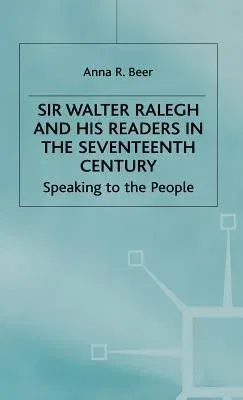A Beer
(Author)Sir Walter Ralegh and His Readers in the Seventeenth Century (1997)Hardcover - 1997, 15 October 1997

Qty
1
Turbo
Ships in 2 - 3 days
In Stock
Free Delivery
Cash on Delivery
15 Days
Free Returns
Secure Checkout

Part of Series
Early Modern Literature in History
Part of Series
Studies in Diplomacy
Part of Series
Social History of Africa,
Print Length
207 pages
Language
English
Publisher
Palgrave MacMillan
Date Published
15 Oct 1997
ISBN-10
0333660765
ISBN-13
9780333660768
Description
Product Details
Author:
Book Edition:
1997
Book Format:
Hardcover
Country of Origin:
US
Date Published:
15 October 1997
Dimensions:
21.59 x
13.97 x
1.6 cm
ISBN-10:
0333660765
ISBN-13:
9780333660768
Language:
English
Location:
London
Pages:
207
Publisher:
Weight:
426.38 gm